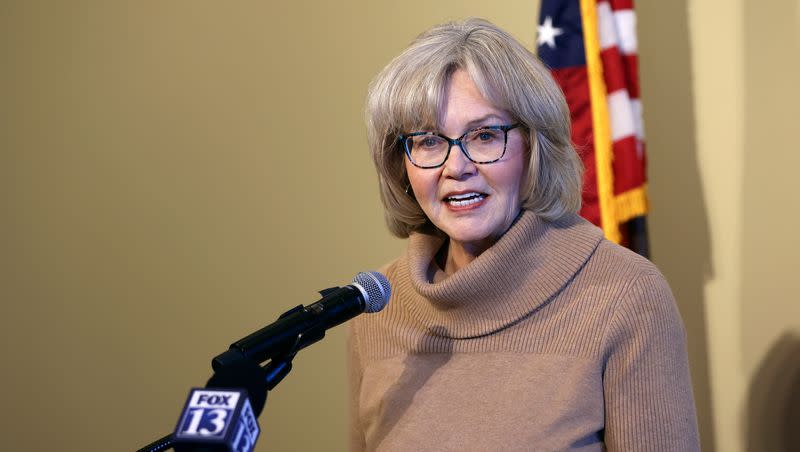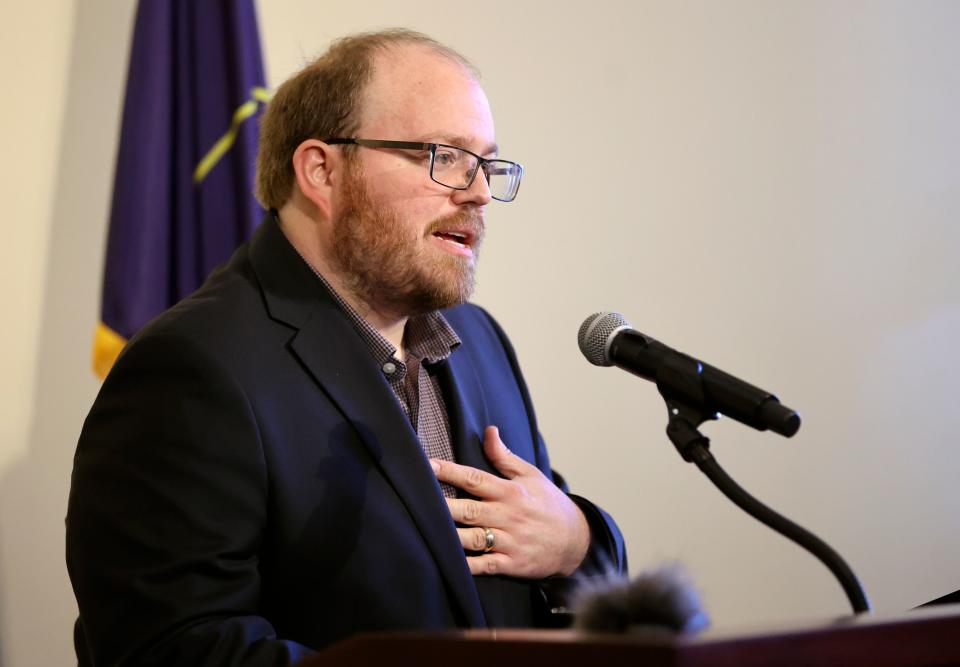Should the threshold be higher for passing an initiative that raises taxes? Here’s what Utah voters may be deciding

A proposed amendment to the Utah Constitution raising the threshold to 60% of the vote to pass citizen initiatives that increase taxes was criticized by opponents Wednesday as an attempt by state lawmakers to “take away the voice of Utahns.”
Two pieces of legislation related to the amendment, HJR14 and HB284, both sponsored by Rep. Jason Kyle, R-Huntsville, won approval in a party-line vote Tuesday from the House Government Operations Committee and are headed to the full House.
“I think it should be difficult to raise taxes,” Kyle said during the committee hearing, noting that while changes can be made to bills during the legislative process, with a citizen initiative, “you get what you get when it comes out.”
In response to a question from one of the Democrats on the committee opposed to the legislation, Kyle said he wouldn’t be against imposing the same 60% threshold on state lawmakers for tax increases.
Related
Initiatives are becoming “too common” and may be driven by out-of-state special interests said Kyle, who unsuccessfully ran similar legislation last year. “I don’t necessarily think it’s a great way to govern when it comes to taxes.”
Moving from a simple majority to 60% “is not an insurmountable threshold” for initiatives that raise taxes, he said, adding the resolution putting the constitutional amendment on the November ballot and the legislation that would take effect if it passes are “fairly simple.”

Members of the “Let Utah Vote” coalition that’s described as “dedicated to protecting and progressing the right to vote in Utah” urged voters to help them stop the measures from advancing further this session.
The bill and the resolution “are direct attacks on the ability of Utahns, rural and urban alike, to participate in our democracy,” TJ Ellerbeck, executive director of the Rural Utah Project, said at a news conference at the Capitol.
Initiatives and referendums are seen “as one of the most direct ways that we can have impact on statewide policy,” Ellerback said, accusing the Legislature of “attempting to take away the voice of Utahns and make us across the state play by a different set of rules.”
Getting an initiative passed in Utah is already “brutal and difficult,” said Sheryl Allen, a former Republican legislator and a member of the Better Boundaries board, the group behind the 2018 ballot initiative that created an independent redistricting committee.
With requirements already in place that include gathering more than 134,000 voter signatures from specific parts of the state, Allen said elevating the threshold for some initiatives to pass should never be considered by the Legislature.
The people are supposed to have equal power to legislate under the Utah Constitution, she said, calling on Utahns “who believe in the power of the people and the ability to legislate through initiatives” to contact their legislators about what she labeled a power grab.
Dixie Huefner of the Utah Citizens’ Counsel pointed out that the Medicaid expansion ballot initiative approved by voters in 2018 included a sales tax increase and would have fallen short of the 60% vote threshold.
“In a statewide initiative, in a polarized political climate, it’s extraordinarily difficult to expect to be able to get that kind of threshold,” Huefner said. “I think the Legislature understands perfectly well the difficulty they’re creating.”
Related
The Senate sponsor of the bill and resolution that would make the change, Sen. Lincoln Fillmore, R-South Jordan, said later Wednesday he wasn’t surprised “there are people who want to make it really easy for government to take more of other people’s money.”
Fillmore said voters will have their say on whether the threshold should be raised if the constitutional amendment passes the Legislature and gets on the November general election ballot.
In Utah, a proposed constitutional amendment must be backed by at least two-thirds of the House and the Senate to go before voters. As in most states, it takes only a majority of Utah voters to pass a constitutional amendment.

